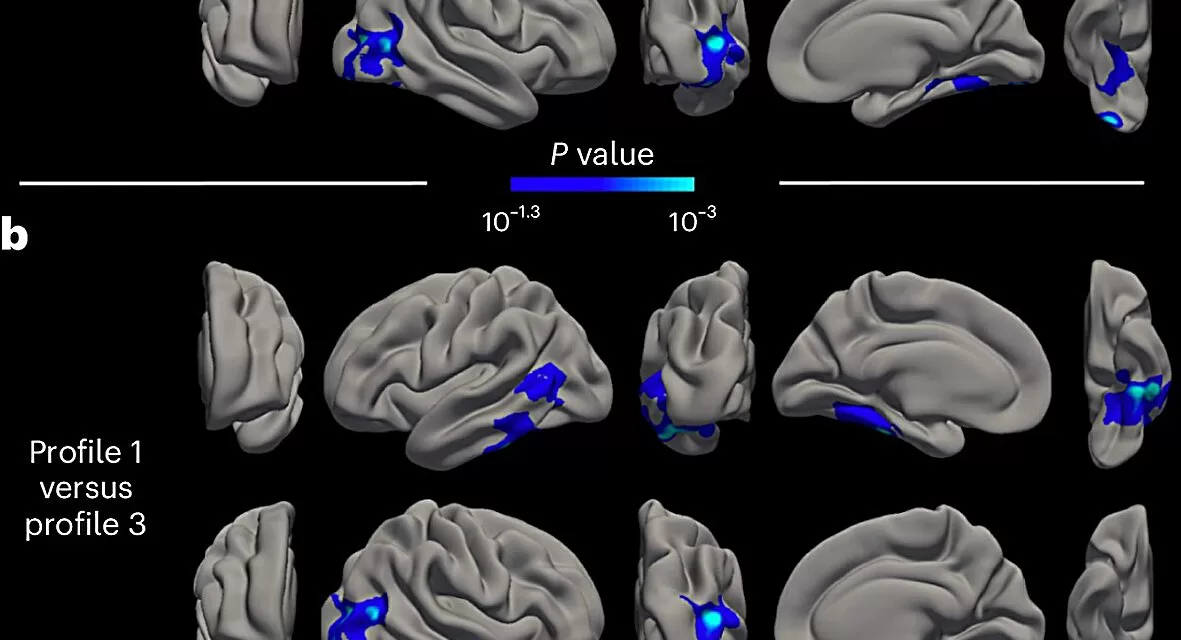An International Study Reveals New Insights into the Role of Psychological Traits in Cognitive Decline
An international study published in Nature Mental Health has identified three distinct psychological profiles that could influence the rate of cognitive and brain decline in aging adults. The study, which analyzed data from over 1,000 middle-aged and older adults, sheds new light on how psychological characteristics, such as stress levels and sense of purpose, could determine the risk of dementia, brain atrophy, and mental health issues over time.
The research team, led by David Bartrés-Faz of the University of Barcelona’s Faculty of Medicine and Health Sciences, discovered that psychological factors—when considered together—create profiles that correlate with both cognitive evolution and brain integrity. These findings suggest that more personalized prevention strategies may be developed to help mitigate cognitive decline and its associated risks, such as dementia.
“Psychological characteristics should not be examined in isolation,” said Bartrés-Faz. “Our study demonstrates that the combination of psychological traits plays a significant role in determining mental and cognitive health in aging.”
Risk and Protective Factors for Cognitive Decline
Previous studies have shown that certain psychological traits can either increase or decrease the risk of cognitive decline. Traits like repetitive negative thoughts and high stress levels are linked to higher risks of neurodegeneration, while traits such as a strong sense of purpose and self-reflection have been found to protect against cognitive impairment.
In this study, the team analyzed data from two independent cohorts of middle-aged and older adults from the BBHI and Medit-Aging international studies, focusing on whether psychological risk and protective factors could combine into distinct profiles that predict outcomes in mental and cognitive health.
The study highlighted the need for comprehensive psychological assessments to better understand these profiles and implement more targeted, individualized behavioral interventions.
Mental and Cognitive Health Implications
The results of the study revealed three primary psychological profiles that influence cognitive and brain health:
- The Well-Balanced Profile: This group, characterized by moderately high levels of protective traits (such as a sense of purpose) and moderately low levels of risk traits (such as distress), showed the best mental, cognitive, and brain health outcomes across all age groups.
- The Low-Protective Profile: Individuals with this profile, who lacked key protective traits such as extraversion and openness, exhibited poorer cognitive performance, especially in older adults. This group also showed more pronounced brain atrophy and lower adherence to healthy lifestyles.
- The High-Risk Profile: Individuals in this profile, marked by high levels of negative psychological traits like anxiety, depression, and distress, were found to be at greater risk for cognitive decline, brain atrophy, and dementia. These traits were often accompanied by symptoms such as loneliness, cognitive complaints, and sleep disturbances.
Future Prevention Interventions
These findings could have significant implications for future preventive interventions. According to Bartrés-Faz, individuals with the low-protective profile may benefit from therapies that help reintroduce a sense of purpose and identify valuable life goals. “Therapies such as acceptance and commitment therapy could be particularly beneficial for these individuals,” he suggested.
For those with the high-risk profile, interventions aimed at reducing distress-related symptoms, including therapies to address depression and anxiety, may be more effective in preventing cognitive decline and improving overall mental health.
The study stresses the importance of comprehensive psychological evaluations that consider both risk and protective factors. These assessments could lead to more personalized interventions, ultimately contributing to better mental, cognitive, and brain health throughout aging.
As the study is validated with larger sample sizes, the hope is that these psychological profiles could guide future preventive strategies and promote healthier aging.
For more information, see the full study: David Bartrés-Faz et al, Psychological profiles associated with mental, cognitive, and brain health in middle-aged and older adults, Nature Mental Health (2025). DOI: 10.1038/s44220-024-00361-8












